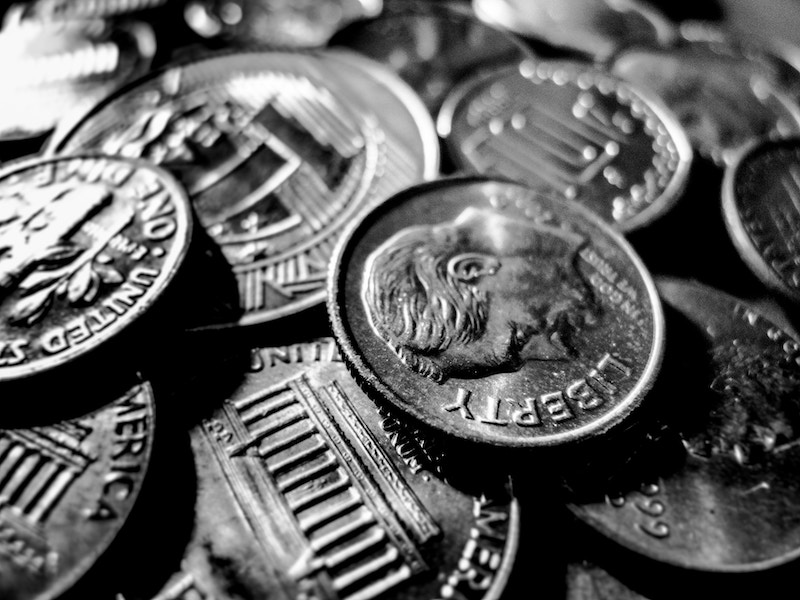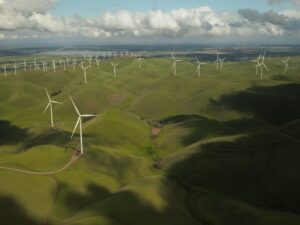It would require a radical transformation of how we do things
If we want to create sustainable societies where human needs are met within environmental limits, then we need to move to a post-growth economy. This is an argument made by a growing movement of people. One such idea is the concept of degrowth. In theory, the goal of a degrowth economy seems simple enough — reduce the throughput of energy and resources used to make goods and services, while simultaneously increasing human well-being. In practice, that goal is revolutionary and would require nothing less than a total transformation of the economy and, with it, our behaviour, norms and values. To get a sense of why moving to a degrowth economy is such a radical proposition, we need to ask ourselves a question, how would doing so impact the financial sector?
To answer that question, we need to ask ourselves a series of different questions. First of all, what is money? The answer feels obvious; it’s the coins and notes in my pocket; it’s the amount I have in my bank account. But money is actually far more abstract than the physical currency we use in our daily lives. Money serves three core functions in modern society;
- As a unit of exchange used in trade.
- A unit of account — sometimes goods are assigned monetary values even if they’re not bought or sold (for example, unsold inventories in warehouses).
- A store of value, in that it can be saved and used in the future to purchase goods and services.
Money has no intrinsic value but is rather a claim on wealth. Real wealth is in resources, products, and services that add value to our lives. Wealth comes from land, fertile soil, housing, transportation, nutrition, clothing etc. Where the problem begins is that in modern society, money is idolised as a possession. The goal of each individual is to accumulate as much money as possible because social success hinges on having more money, and, therefore, more disposable income to buy consumable goods, than everyone else. It is the pursuit of more money that is the driving force of individual motivations and behaviour. To get to the roots of the issue with our relationship with money, we need to ask another question. How is money created? Again, it seems obvious, central banks print money. The reality is that the vast majority of money in circulation is ‘created’ by commercial banks, almost literally out of nothing, in the form of interest-bearing loans. Banks can do this because they’re legally allowed to issue loans far in excess of the money they hold in deposit.
Tim Jackson alludes to how it works in Prosperity Without Growth, where he describes how when a bank agrees to loan money to a business or household, the bank “enters the amount as a loan on the asset side of its balance sheet and the same amount as a deposit on the liability side of its balance sheet. This deposit is then available to spend on goods and services in the economy.” What this means, is that the majority of the money supply is created by banks who make loans at interest. In other words, money is debt.
It’s the loans at interest part of money creation that is so problematic. Seeing as interest on debt compels the loanee to pay back more money than they borrow to the loaner, “the total money supply must expand over time to avoid defaults. This additional money can only come from one place, more loans. As a consequence, the total amount of debt must increase over time for the financial system to continue functioning under its current conventions.” The outcome is that total debt continues to rise. As of 2021, the total amount borrowed by governments, businesses and households, crossed the $300 trillion barrier mark. That debt is three times larger than the global economy. So how is debt related to the ecological crisis? As the economist Richard Douthwaite points out in The Ecology of Money, the “fundamental problem with the debt method of creating money is that, because interest has to be paid…the economy must grow continuously if it is not to collapse.”
When businesses take out a loan, they acquire capital that allows them to produce goods or services. The only way they can pay back the debt is to create a surplus by increasing production and consumption to repay the loan and the accompanying interest payments. Debt makes the pursuit of growth an obligation, but the issue with an economy that depends on never-ending growth is that the economy is now so large we’ve moved into a state of ecological overshoot. The climate crisis, as well as every other environmental impact we’re inducing on the planet, is an effect of overshoot. In other words, if we want to create a sustainable society where needs are met within environmental limits, we need to decrease the resource and energy intensity of the economy. Put simply, the economy can’t continue to grow.
The thing is, the economy must grow to pay back debt. Currently, the compulsion to do so will work to increase overshoot which will increase environmental impacts, which will move us ever closer to collapse, a scenario you would imagine, will put the brakes on economic growth. Seeing as the current financial system creates a growth imperative, interest-bearing loans aren’t compatible with a sustainable society that needs within environmental limits. An economy free from interest payments would have different mechanisms for carrying out many processes. What’s clear is that a post-growth economy “simply couldn’t live inside any recognisable form of capitalism. We would have to systematically dismantle one of the most fundamental aspects of capitalism — the charging of interest on debt — to have any chance of success.”
Moving to a post-growth economy would involve replacing the creation of money at interest with “arrangements whereby money is made available, lent, invested etc., without increasing the wealth of the lender. That is incomprehensible to most current economists, politicians and ordinary people.” It’s also rather distasteful because behind every debt is a debtor. Debtors expect repayment. But moving away from a growth economy and embracing an interest-free banking system would imply debts won’t be repaid. It’s likely that debtors won’t be so enamoured with such a proposition.
This is, admittedly, a simplified overview of the financial system. But the intention hasn’t been to explain the nooks and crannies of the murky world of finance, but rather to demonstrate just how radical a proposition movement to a post-growth economy really is. There are plenty of compelling reasons to move away from a growth economy, but it’s the consequences of doing so that are truly revolutionary. Move away from growth, and you sweep the carpet away from the entire construct that emanates from that belief.
It would be naive and unrealistic to imagine we will spontaneously move to a post-growth society when powerful vested interests have everything to lose if we do. The thing is, the environmental reality of overshoot means it’s no longer a choice whether we give up growth or not. The options are to move out of overshoot by design or disaster. As the financial sector demonstrates, we’re so enslaved by a belief in growth that it’s politically, socially and economically unviable to imagine we’ll move to a post-growth society by design. In other words, the pathway has already been made — we’re going to exit overshoot by disaster.




You are right that the modern economic system aka debt creation is fundamentally at odds with climate crisis. To take your mental exercise a bit further, if interest bearing debt is not produced the debtors won’t be happy but let’s say we do it somehow. In practice this can be implemented by very high interest rates. Central bank interest rate is after all the cost of producing/lending money so a very high interest rate can slow/stop the creation of debt. The total amount of money in the world stays constant after that point. Now to access money, the governments, people, businesses would have to ask someone with more money to lend it to them and they will pay it back by making the slightly more money (because they need to feed themselves with same money). However, in such an economy every new entrant (a new born human for example) would need to get a share of that fixed money pie through the leftover pie of the newly dead population. In effect, the population must stop growing (perhaps decrease too?). An unintended consequence would be that money will become intrinsically valuable meaning that people will hoard money or spend very cautiously. a deflationary spiral may occur where people only spend what they really have to. No non-essential economic activity would be viable. how do you crowdfund for massive railway system when people will only get their exact investment back (and that too if the project succeeds). In the era where money is costly this might be a difficult thing to pull off. As you point money is also a claim on resources. At some point soon some of those resources (like coal, fossil fuel, copper, steel) will be pretty expensive because they are not renewable. So money will essentially lose some of its power because no matter how much you have you can’t buy the thing that doesn’t exist. What I am getting at is that, life may not be so bad but it will certainly look different. more like the Middle Ages and certainly much less connected.